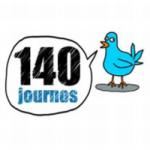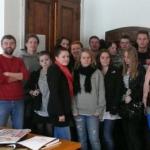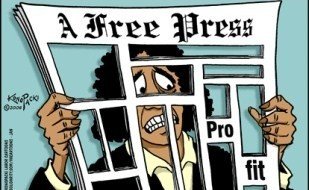At the "Founding Conference" that took place on Jan. 13, 2001 in Izmir, the decision was taken to found BIANET "so that the local media would create an alternative by using its own products vis-à-vis the existing news and publishing monopoly, local publication would be re-structured on the basis of international news and publication norms and the result would be a concept of journalism that would be for public benefit and whose basis would be freedom of information for the people." The executive Board of the project was formed by 12 people, and since then BIANET has been available on the internet.
BIA is a "network of communication and cooperation on a productive basis" in which local media, local radios, local television channels and local newspapers are involved and has a clear and trans-parent structure through which producers of news and Information meet with readers. As a real network of communication, it aims to be enlarged by new participants. It also considers that all participants should have equal rights. Today local media organizations, vocational organizations, NGOs, communication educators and journalists financially and morally contribute to BIA.
BIANET daily publishes at least 20 news items and three commentaries and İs made up of three editors, a reporter and a webmaster, headed by Ertugrul Kurkcu and Nadire Mater. Most visitors to the website are connected in their workplace. Nearly one-third of visitors include Turks living abroad.
Alternative journalism
The BIANET website, known for its sensitivity to alternative comments and issues not addressed by other media organs, is a rich source for those who want to become acquainted with real agendas.
Journalist-writer Ipek Calislar states that in BIANET she can find news not published in the major media, and says that foreign news is of high-quality. Calislar says the following about the leading factor that makes BIANET different from other news sites:
"They attach importance to things neglected by other media organs. Beyond online journalism, their cooperation with local media and efforts to educate new journalists create their difference."
BIA News Center daily provides news and information related to the conditions and realities of ordinary people who are generally neglected by the Turkish mainstream. It aims at giving a voice to the lives and realities of the voiceless and unheard. From the initiation of BIA's website BIANET on Dec. 7, 2000 to Feb. 28, 2003, the news/articles of 1,109 journalists/reporters have been published. Kurkcu, one of the initiators of BIA, says: "More than occupational earnings, BIA is important for the poorest sections of local media because of the feeling of support and solidarity created by togetherness." The goals of BIA in online journalism are the following:
* To remove the handicaps for local media so that it can achieve the rights and opportunities recognized for national ra-dio, TV and newspapers,
* To create an alternative to the existing news and publication monopoly by using its own products; to fight against the handicaps for the freedom of information,
* To restructure local media on the basis of international news and press norms,
* To restructure To enable everyone to get information about shared education and technology,
* To bring all institutions, which publish in accordance with the European Convention on Human Rights, the principles of the European Br Union and United Nations' Universal Declaration of Human Rights, which were signed by Turkey and all journalists and non-governmental organizations that share these principles, together, and to strengthen occupational cooperation,
* To realize a concept of journalism whose basis Is the common good and the people's freedom of information.
Some services provided by BIA
BIA Editorial Desk pools news and information dispatched by affiliated local radio stations, TV channels and newspapers. Reporting and coverage by the BIA News Center in Istanbul and in other related BIA departments are also collected in this news pool.
BIA Legal Assistance Desk: Routinely interviewed by the desk, the local media editors and representatives are queried about their recent problems and difficulties. The desk monitors and records its findings. The records are collected and published in six-monthly and annual reports of "Violations Against Local Media." The desk provides BIA affiliates and the public information up-dates, particularly on Turkish Communication Law, Copyright Law, the Radio and Television Higher Council (RTÜK) and other issues. The desks services are free of charge. BIA Program Production Center produces radio programs for t local media, who may not have the necessary facilities and know-how for quality programs.
The output is reprocessed as text for the local newspapers. The center was established as a response to local radio shortcomings, which were widely discussed during local meetings with the local media in 1996-97. Already three radio programs are on air: The weekly women's program "The Women's Window," the weekly child program "Children's Radio" and a daily program This day in History."
Local Media Education Program through the education of workers at local newspapers, radio and TV, which are members of the network, the program makes an effort to strengthen the local media in promoting the concept of journalism/publishing that respects the professional principles of international journalism.
To see what everyone does not see
Online publication is just one step in the BIA initiative. There is also the step of "education" that receives a much greater share of the financing. The first level of local media-oriented education was realized in January 2001 at nine points all over Turkey. Seminars were organized on the first day, workshops were organized on the second day. During the seminars issues such as writing and interpreting news, and technology use were taken up and ethics and occupational approaches discussed. Kurkcu says that al the second level of education they will focus on application.
BIANET set out to fill an important gap in Turkey and it continues to be a source of alternative news and commentary on the internet as a vein that nourishes the local media. It monthly publishes nearly 300 news items and has it: own structure, independent journalist: and member institutions. Ertugrul Kurkcu, the news coordinator for BIANET, which objectively publishes ; wide range of news from ethnic identities in Turkey to human rights, from prisons to environmental problems, says, The perspective through which you see events is important. For example, if you see the current events in the world from the perspective of peace, you don't see the moment of war but the preparation of war, and start to see what everyone does not see."
During the days when BIA went online, journalist-writer Ragıp Duran noted that the BIA had done a very good thing in this country by putting an "Independent Media islet" that was frequently mentioned in theory, into effect.
He added following: "It is a special success for Kurkcu and Mater to produce news on very important but neglected areas like human rights, women children, and freedom of thought, expression and press. It doesn't make any sense to be only the opposition or a democrat. It is more important to do your job properly. Therefore if BIA lives for long years, it can be a model for every person, group and institution which wants to work as a journalist outside the sovereign media.
Unfortunately, the fact that the main financial source of BIA is EU funds for limited period may prevent it from realizing long-term projects. Still, the existence of BIA is a big advantage for Turkish media."
Today laying aside all negative factors, BIANET proceeds on its own way in alternative journalism in order to exist in the online news sector.(EK)










